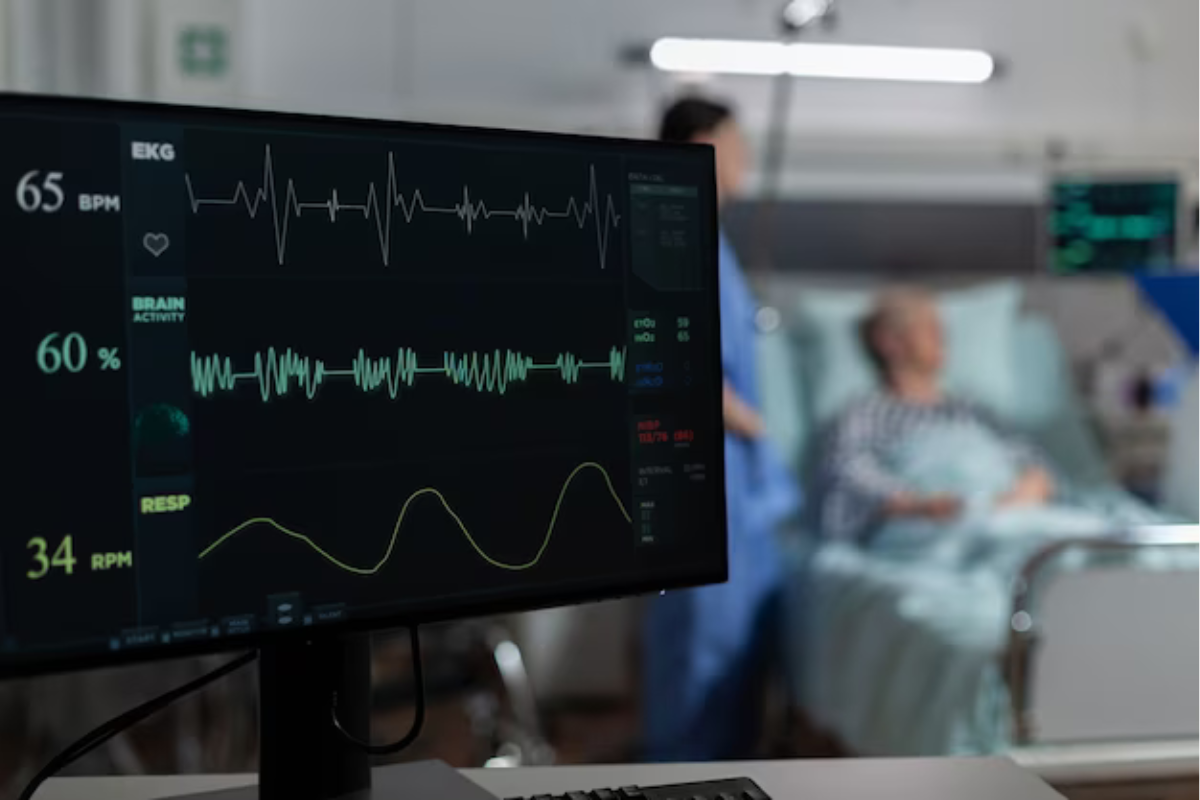Electrocardiography (ECG or EKG) is a diagnostic test used in pathology to assess the electrical activity of the heart. It provides valuable information about the heart's rhythm, rate, and overall cardiac health. Here are the key details regarding ECG services in pathology:
-
Purpose:
- ECG is primarily performed to evaluate the electrical conduction system of the heart.
- It helps diagnose various cardiac conditions, including arrhythmias, ischemic heart disease, conduction abnormalities, and structural heart disorders.
-
Procedure:
- The patient lies down, and small electrodes are attached to specific points on the chest, arms, and legs.
- These electrodes detect and record the electrical impulses generated by the heart.
- The ECG machine then produces a graphical representation (electrocardiogram) of the heart's electrical activity.
-
Indications:
- ECG is commonly ordered in cases of chest pain, palpitations, shortness of breath, and dizziness.
- It is a routine test during pre-surgical assessments, general health check-ups, and in monitoring certain medical conditions.
-
Interpretation:
- A trained healthcare professional, often a cardiologist, interprets the ECG results.
- The ECG waveform consists of P waves, QRS complexes, and T waves, each representing different phases of the cardiac cycle.
-
Types of ECG:
- Resting ECG: Conducted while the patient is at rest.
- Exercise (Stress) ECG: Conducted during physical activity or with the use of pharmacological stress agents to assess the heart's response to increased workload.
-
Holter Monitoring:
- In some cases, a 24-hour or longer continuous ECG monitoring (Holter monitoring) may be recommended for detecting intermittent abnormalities.
-
Advantages:
- Non-invasive: ECG is a non-invasive procedure, involving no penetration of the skin or body cavities.
- Quick Results: The test is relatively quick, providing immediate information on the heart's electrical activity.
-
Limitations:
- ECG may not detect all cardiac abnormalities, especially those that occur infrequently.
- It provides information on electrical activity but does not directly visualize structural abnormalities.
-
Integration with Other Tests:
- ECG is often part of a comprehensive cardiac evaluation, which may include blood tests, imaging studies (e.g., echocardiography), and other diagnostic procedures.
-
Clinical Significance:
- ECG findings contribute to the diagnosis, treatment, and ongoing management of various cardiac conditions.
- It plays a crucial role in assessing the risk of cardiovascular events and guiding therapeutic interventions.
In conclusion, ECG is a fundamental diagnostic tool in pathology that aids in the assessment of cardiac health by providing valuable insights into the heart's electrical activity. It is widely used in clinical settings to diagnose and manage a variety of cardiac conditions.
